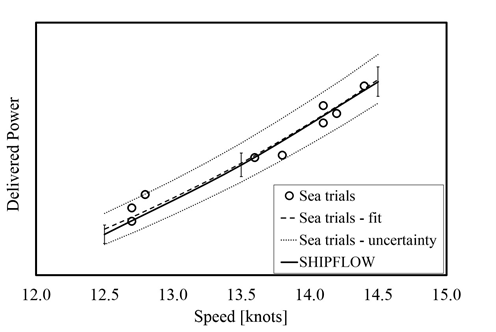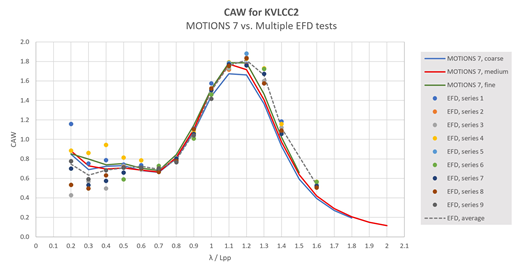"Improved digital tools for the hydrodynamic design of energy efficient ships – validation, demonstration and introduction to the maritime industry"
FLOWTECH has just successfully finished a project executed with support from the Swedish Energy Agency (Energimyndigheten). The results of the work include the following:
- Verification and Validation of CFD simulations of delivered power at full-scale were carried out for ships for which high-quality sea-trial data was collected. Special attention was paid to the effect of roughness on the hull and propeller to improve the accuracy of the simulations. The comparison error for the delivered power was about 1% which shows that the simulations at full scale can very accurately predict power demands of new ships as well as ships in service.

- The study performed within this project showed that the numerical optimization of ship hulls at full-scale could yield higher gains in power savings. The presented optimization process included the propeller-hull interactions, and a clear advantage of self-propulsion-based optimization was observed.
- An efficient and accurate numerical procedure to estimate the decrease of ship speed in wind and waves was developed. It was used to calculate the weather factor of the attained energy efficiency design index for new ships, EEDI, for a tanker. The predictions were compared to the model test results and a database of similar ships. The comparison error was 1% for the resistance and the predicted weather factor was in line with the database values.

- Materials with examples and analyses of the project results illustrating the new possibilities for developing energy-efficient hull shapes were prepared. Several papers for scientific journals were written and the resulst will be presented in the upcoming conferences and workshop on numerical ship hydrodynamics. The results will also be shared with the shipyards and design offices through the company network.
